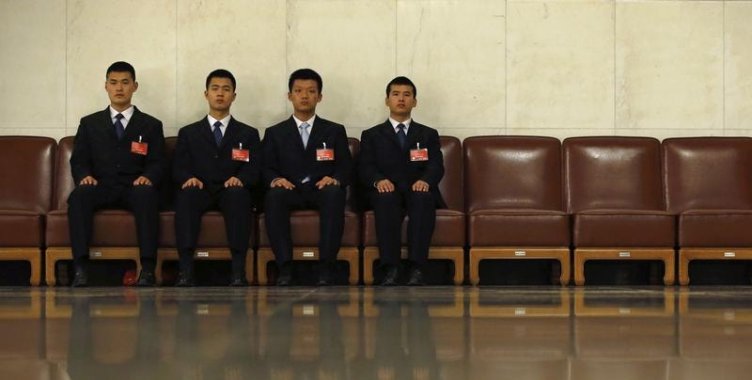In Angola, the Democratic Republic of the Congo, Mali or South Sudan, former members of the Chinese paramilitary police and the People's Liberation Army, the Chinese armed forces, are taking on private security functions, one of the rare reveals to Lusa. researchers in that area.
“Where Chinese telecommunications, oil or mining companies operate, it is increasingly common to hire Chinese private security companies to protect assets and human resources,” explains Alessandro Arduino, principal researcher at the Middle East Institute at the National University of Singapore.
The growing importance of security in the context of initiatives such as “one lane, one route”, the gigantic infrastructure plan launched by Beijing, which covers Southeast Asia, Central Asia, Africa and Europe, comes after attacks and kidnapping of personnel Chinese operating in Africa.
Last December, in the most recent incident involving Chinese workers on the continent, three miners in the Nigerian state of Osun were kidnapped and released days later. Chinese authorities or Nigerian police have not disclosed whether a ransom has been paid in return.
However, it was already in 2015 that the deaths of three Chinese executives in the attack on a hotel in Bamako, Mali, led to an increase in public perception in China, with the topic “Chinese Lives Matter” gaining traction in country's social networks.
The withdrawal of tens of thousands of Chinese during the conflicts in Libya and Yemen illustrated the increased capacity of the Chinese armed forces to protect citizens abroad and the Asian country's new vision of itself: a world power ready to defend its interests across borders.
In “Wolf Warrior II”, the most watched movie ever in China, and premiered in 2017, one of the most emblematic phrases is: "Whoever offends the Chinese nation will be punished, no matter how far away".
Lobo Guerreiro II tells the story of a Chinese soldier in a war zone in Africa, where he saves hundreds of people from a slaughter conducted by Western mercenaries, who try to take over the country.
Alessandro Arduino separates reality from fiction. The principle of non-intervention remains a cornerstone of Chinese foreign policy, limiting the role of the Chinese armed forces to protect individual targets, he recalls.
"This is an issue that is increasingly discussed in Chinese academic circles," admits Alessandro Arduino. "Soon, China will be forced to reevaluate the principle of non-intervention," he says.
In theoretical terms, models of “selective or limited intervention” are already being studied by Beijing, and in 2017, the Asian country opened its first military base abroad, in Djibouti, in the Horn of Africa.
The Chinese navy has further improved its ability to carry out deep-water missions, including anti-piracy missions in Somalia.
Obert Hodzi, author of the book "The End of China's Non-Intervention Policy in Africa", points to the Lusa agency as Beijing has "protected important Chinese oil infrastructure" and "trained its troops to fight on the ground" through participation in UN peacekeeping missions in South Sudan or Mali.
Beijing, which once regarded these missions as a form of interference, and sent only doctors or engineers, has in recent years also started to deploy soldiers for combat - 2506, in 2018, the highest number of members of the United Nations Security Council.
However, “there is still a long way to go”, until China is able to offer complete coverage to its interests abroad, argues Arduino.
"There is a security gap that allows Chinese private companies to act, so that these operations are carried out without direct interference from the People's Liberation Army," he says.
Alessandro Arduino admits that the term private has to be placed in the context of China - a socialist state, according to its Constitution - where the Chinese Communist Party has a strong influence on companies, but ensures that the firms operating in the sector do not obey a political agenda.
"Most of the companies I have researched these years are in the market to make money," he says. "They see security as a business," he says.
The academic explains that the fact that these companies are mainly led by former members of the police, army or intelligence services, is due to the first security law implemented by China, in 1993, which only allows the granting of licenses to those three groups, and only changed in 2010.
The main risks affecting Chinese companies in Africa range from theft, vandalism, kidnapping and terrorism.
In addition to protection, private security companies also provide their customers with intelligence services, which can be crucial in negotiating with local tribes and militias, in conflict-prone regions, and in which Chinese companies are involved in resource extraction.
Chinese law, like many countries, with the exception of the United States, prohibits its nationals from carrying weapons abroad. To date, only a few Chinese companies have received a Beijing license to carry weapons, including the Hua Zin Zhong An group, headquartered in the Chinese capital, and which provides protection services for large companies in the country operating on the African continent.
One solution is to hire former members of US special forces such as SAS (Security Asset Solutions) or SEAL (Strategic Executive and Logistical Security), or among the local armed militias, placing Chinese personnel in top positions.
The use of weapons, however, is “likely to cause tensions” since it violates the principle of non-intervention, one of the five pillars of China's international relations policy, explains Alessandro Arduino.







